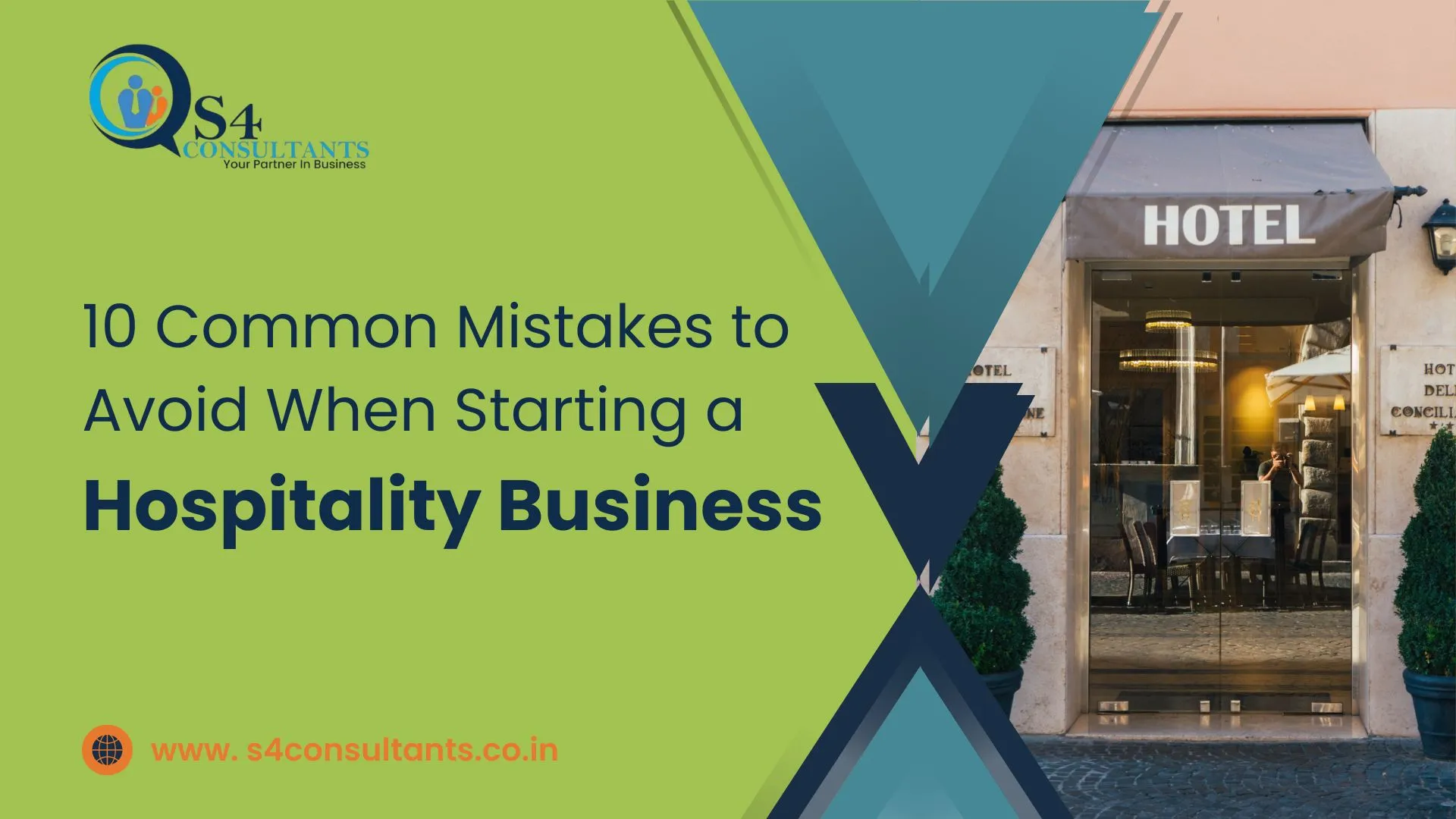Food Safety Compliance: Latest Guidelines and Implementation Strategies
September 26, 2025

The hospitality industry is dynamic, rewarding, and competitive. Starting a hospitality business can bring immense satisfaction, but the path to success is often challenging. Entrepreneurs can falter by making preventable mistakes, which can affect their long-term growth. This guide explores the common mistakes to avoid in hospitality business ventures, ensuring your journey is smoother and more profitable.
The hospitality industry thrives on service, efficiency, and customer satisfaction. Even minor errors in planning or execution can derail business operations. With competition growing rapidly, avoiding missteps is essential to establishing a successful venture. Every detail, from location to customer experience, matters. A strong foundation, backed by informed decisions, ensures sustainability and steady growth.
Market research forms the backbone of any business strategy. Overlooking this step leads to a poor understanding of customer needs, competition, and location viability. Hospitality businesses rely on tailored services. Without research, it’s hard to align offerings with market demands. Analyze your chosen area’s demographics, spending habits, and preferences to make informed decisions.
Many startups must pay more attention to operational expenses or miscalculate revenue projections. Creating a realistic budget is crucial. Include costs for rent, utilities, staffing, marketing, and emergency reserves. Hospitality consultancy services often highlight the importance of financial planning to avoid cash flow issues. A well-structured budget prevents overspending and prepares you for unexpected challenges.
A solid business plan isn’t just a formality; it’s a roadmap to success. It outlines your goals, strategies, and benchmarks. Without one, measuring progress or securing investors becomes difficult. Hospitality management consultancy services stress the need for flexibility in business plans to adapt to changing industry trends and customer expectations.
Starting a hospitality business requires compliance with numerous regulations. From health and safety certifications to liquor licenses, paying attention to these aspects can lead to hefty fines or shutdowns. Engage hospitality consulting services to ensure all legal requirements are met. Stay updated on local laws and regulations for smooth operations.
The location of your hospitality business determines its accessibility, visibility, and profitability. Picking a spot based solely on cost-saving can backfire. A prime location with good foot traffic often brings higher returns. Research factors like proximity to target customers, ease of access, and competition in the vicinity.
Customer service is the heart of hospitality. Failing to prioritize it can lead to negative reviews and lost clientele. Train staff to handle guests professionally and resolve issues swiftly. Personalized service builds loyalty and differentiates you from competitors.
Modern hospitality businesses leverage technology to enhance efficiency and customer experience. Ignoring tools like POS systems, online booking platforms, or customer feedback software can leave you behind. Automation reduces errors, streamlines operations, and improves guest satisfaction. Embracing tech trends keeps your business competitive.
With a USP, your business can blend into the crowd. Ask yourself what makes your service unique. Whether it’s eco-friendly practices, personalized experiences, or exclusive cuisines, your USP should effectively address customer needs. Hospitality consultancy services often emphasize identifying and showcasing your strengths to build a distinct brand.
Marketing is critical to attract and retain customers. Relying solely on word-of-mouth limits growth. Build an online presence with a professional website and active social media accounts. Encourage customers to leave reviews and use digital ads to reach your audience. Hospitality consulting services recommend focusing on consistency in branding to establish credibility.
Trends in hospitality evolve constantly. Failing to adapt makes your business seem outdated. Sustainability, wellness, and personalized dining are popular trends today. Stay informed about market shifts and be willing to innovate. Regularly assess customer feedback to align with expectations and preferences.
Success in the hospitality industry requires strategic planning and a customer-first approach. Build a team of skilled professionals who understand your vision. Invest in training to ensure high-quality service. Networking within the industry opens doors to partnerships and new ideas. Regularly monitor industry trends and embrace innovation to remain competitive.
By addressing common mistakes and focusing on continuous improvement, you can create a thriving hospitality business that stands out in the competitive landscape.
Starting a hospitality business is an exciting yet challenging journey. Avoiding common mistakes like skipping market research, underestimating financial planning, and neglecting customer service sets the stage for a successful venture. Paying attention to licensing, embracing technology, and adapting to industry trends are equally crucial.
Every successful hospitality business thrives on a combination of strategy, innovation, and customer satisfaction. Avoiding these pitfalls ensures a solid foundation and increases your chances of building a reputable brand. With careful planning and continuous improvement, you can create a business that meets and exceeds customer expectations.

September 26, 2025

September 18, 2025

© Copyright 2026 Consult S4 Consultant, Designed by That Rank thatrank.com

